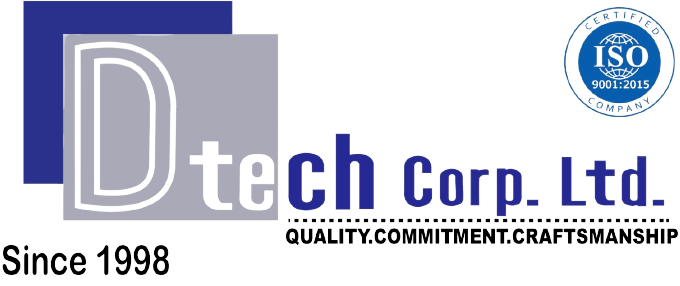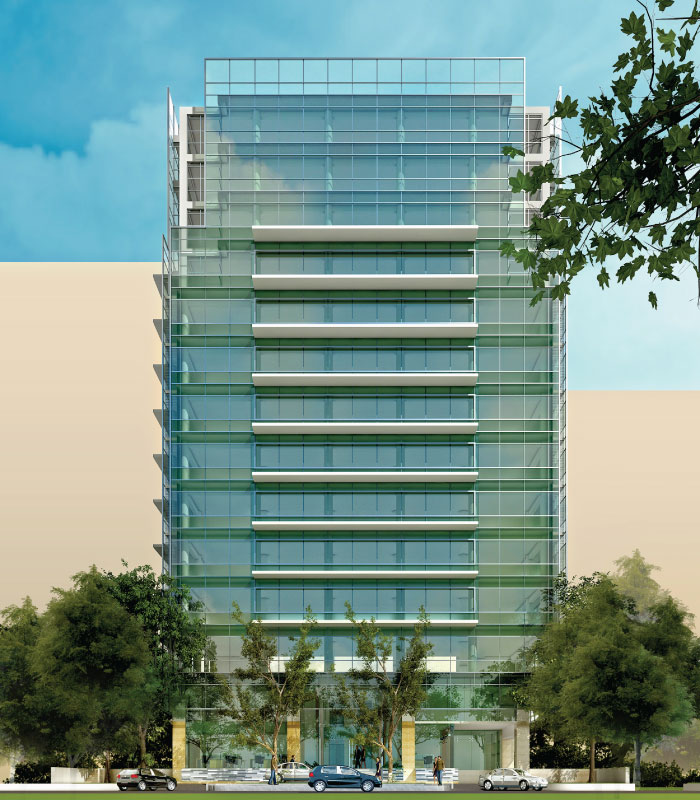Introduction
In the dynamic landscape of Bangladesh’s urban development, the concept of building envelope engineering plays a crucial role in shaping the sustainability, efficiency, and aesthetic appeal of modern architecture. As urbanization accelerates and environmental concerns intensify, the demand for innovative building envelope solutions has never been greater. DTech Corporation, a leader in advanced building technologies, is at the forefront of revolutionizing building envelope engineering in Bangladesh. This article delves into the significance of building envelopes, explores the challenges and opportunities specific to Bangladesh, examines DTech Corporation’s innovative approaches, and discusses the transformative impact of their solutions on the built environment.
what is building envelope engineering
Building envelope design is a specialized area of architectural and engineering practice that draws from all areas of building science and indoor climate control. The many functions of the building envelope can be separated into three categories:
- Support (to resist and transfer structural and dynamic loads)
- Control (the flow of matter and energy of all types)
- Finish (to meet desired aesthetics on the inside and outside)
What is the concept of building an envelope?
A building envelope is the component that separates the exterior of the building from the interior. It’s the shell of the building, and as such, it is a key consideration when constructing. It affects the ventilation, climate, energy consumption and protection of occupants and interiors.
Types Of Building Envelopes
- Singular Envelope. The Singular Envelope is the simplest form of the building envelope. …
- Double Envelope. The Double Envelope is a step up from the Singular Envelope in terms of energy efficiency. …
- Vented Envelope. …
- Pressure-Equalized Envelope. …
- Transparent Envelope.
Understanding Building Envelopes
The building envelope, often referred to as the building shell or facade, is the physical separator between the conditioned indoor environment and the external environment. It comprises roofs, walls, windows, doors, and foundation systems, collectively working to protect occupants, manage energy use, and maintain structural integrity. Key functions of building envelopes include:
- Thermal Performance: Controlling heat transfer between the interior and exterior spaces to ensure comfortable indoor temperatures year-round.
- Moisture Management: Preventing water infiltration and managing humidity levels to protect building materials from decay and mold growth.
- Airtightness: Minimizing air leakage to enhance energy efficiency and reduce heating and cooling costs.
- Durability and Aesthetics: Providing structural support while contributing to the building’s aesthetic appeal and architectural expression.
Challenges in Building Envelope Engineering in Bangladesh
Bangladesh presents a unique set of challenges for building envelope engineering, influenced by its tropical climate, rapid urbanization, and infrastructural demands:
- Climate Variability: The country experiences a subtropical monsoon climate with high temperatures, humidity, and frequent heavy rainfall. Designing building envelopes that can withstand these climatic conditions while maintaining indoor comfort is essential.
- Urban Density: Rapid urbanization in cities like Dhaka and Chittagong has led to increased construction activities and higher building densities. This necessitates scalable building envelope solutions that can accommodate diverse architectural styles and urban landscapes.
- Sustainability Goals: With growing awareness of environmental sustainability, there is a push towards green building practices and energy-efficient designs. Building envelopes must contribute to reducing carbon footprints and promoting resource conservation.
- Regulatory Compliance: Adherence to local building codes and standards, as well as international best practices in building envelope design, poses regulatory challenges for construction projects in Bangladesh.
DTech Corporation’s Innovative Approaches to Building Envelope Engineering
DTech Corporation is committed to addressing these challenges through innovative engineering solutions that prioritize sustainability, performance, and architectural excellence. Their approach encompasses several key strategies:
1. Advanced Thermal Insulation and Energy Efficiency
DTech integrates state-of-the-art insulation materials and technologies into building envelopes to optimize thermal performance and energy efficiency. These include:
- High-Performance Insulation: Utilizing materials such as aerogels, expanded polystyrene (EPS), and polyurethane foam to enhance thermal resistance and reduce heat transfer.
- Energy-Efficient Glazing: Installing double-glazed and triple-glazed windows with low-emissivity (low-E) coatings to minimize heat loss and gain, improve daylighting, and enhance occupant comfort.
2. Moisture Management and Waterproofing Systems
Effective moisture management is critical in Bangladesh’s humid climate. DTech designs building envelopes with robust moisture barriers, breathable membranes, and drainage systems to prevent water ingress and mitigate moisture-related issues.
3. Ventilated Facade Systems
Ventilated facade systems, also known as rainscreen systems, are a specialty of DTech Corporation. These systems create an air cavity between the exterior cladding and the building structure, enhancing thermal insulation, moisture management, and architectural versatility.
4. Sustainable Materials and Green Building Practices
DTech emphasizes the use of sustainable building materials and practices that minimize environmental impact and promote resource conservation. Key initiatives include:
- Recycled Content Materials: Incorporating recycled materials into building envelopes to reduce waste and support circular economy principles.
- Local Sourcing: Procuring materials locally to reduce carbon emissions associated with transportation and support local economies.
- Green Certifications: Pursuing certifications such as LEED (Leadership in Energy and Environmental Design) to validate the sustainability credentials of building envelope designs.
Case Studies: DTech Corporation’s Impactful Projects in Bangladesh
DTech Corporation has been instrumental in several landmark projects across Bangladesh, demonstrating their expertise and commitment to excellence in building envelope engineering:
- Commercial Buildings: DTech’s solutions have been integral to the construction of commercial complexes in Dhaka, enhancing energy efficiency, aesthetic appeal, and occupant comfort. Notable projects include office towers and retail centers that showcase innovative facade designs and sustainable building practices.
- Residential Developments: In residential projects, DTech’s focus on thermal comfort and energy savings has resonated with developers and homeowners alike. Their contributions to high-rise apartments and gated communities have set new benchmarks for building envelope performance in urban living environments.
- Institutional Facilities: Educational institutions and healthcare facilities benefit from DTech’s tailored solutions, which prioritize durability, safety, and sustainability. Projects have included school campuses, hospitals, and research facilities that leverage advanced building envelope technologies to support their mission-critical operations.
Advantages of DTech Corporation’s Building Envelope Solutions
DTech’s innovative approaches to building envelope engineering offer numerous advantages for developers, architects, and building owners in Bangladesh:
- Enhanced Sustainability: By reducing energy consumption, minimizing environmental impact, and promoting green building practices, DTech’s solutions contribute to a more sustainable built environment.
- Improved Indoor Comfort: Optimal thermal insulation, moisture management, and acoustics contribute to superior indoor comfort and occupant satisfaction.
- Long-Term Cost Savings: Energy-efficient building envelopes lower operational costs over the lifespan of a building, providing a solid return on investment for stakeholders.
- Architectural Versatility: DTech’s customizable solutions allow architects to realize their design visions while meeting performance and regulatory requirements.
- Resilience and Durability: Building envelopes engineered by DTech are designed to withstand climatic challenges and environmental pressures, ensuring long-term durability and structural integrity.
Future Trends in Building Envelope Engineering
Looking ahead, DTech Corporation anticipates several key trends that will shape the future of building envelope engineering in Bangladesh:
- Smart Building Technologies: Integration of IoT (Internet of Things) sensors and smart technologies into building envelopes for real-time monitoring, predictive maintenance, and enhanced occupant comfort.
- Biophilic Design Elements: Incorporation of natural elements, green roofs, and living walls into building facades to improve air quality, biodiversity, and aesthetic appeal.
- Circular Economy Practices: Adoption of circular economy principles in building envelope design and construction to promote material reuse, recycling, and waste reduction.
- Climate Adaptation Strategies: Development of building envelopes that can withstand extreme weather events, mitigate climate change impacts, and support resilient urban infrastructure.
Conclusion
DTech Corporation’s leadership in building envelope engineering exemplifies its commitment to advancing sustainable development and innovation in Bangladesh’s construction industry. By leveraging cutting-edge technologies, sustainable materials, and interdisciplinary expertise, DTech continues to redefine the standards of building envelope performance, resilience, and architectural excellence.
As Bangladesh continues its journey towards urbanization and economic growth, the role of robust building envelope engineering becomes increasingly critical. DTech Corporation stands poised to meet these challenges with unwavering dedication to environmental stewardship, client satisfaction, and community well-being.
Through collaboration, innovation, and a steadfast commitment to excellence, DTech Corporation is shaping the future of building envelope engineering in Bangladesh and beyond, paving the way for a more sustainable and resilient built environment.
References
- Bangladesh Bureau of Statistics. (2022). “Bangladesh Population and Housing Census.”
- Bangladesh Institute of Planners. (2021). “Urbanization Trends and Challenges in Bangladesh.”
- Green Building Council Bangladesh. (2021). “LEED Certification for Sustainable Building Design.”


Leave a Reply